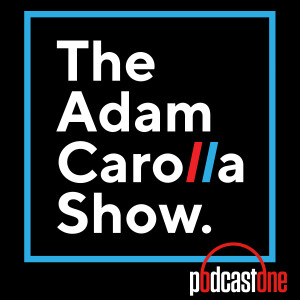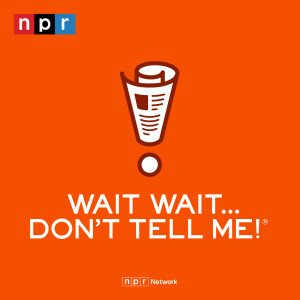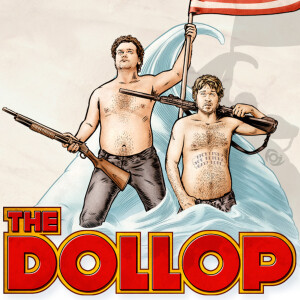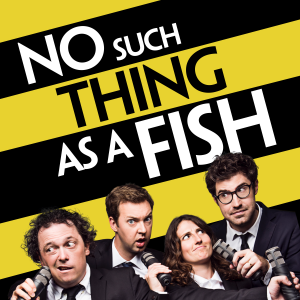

Recycled Cards & Chemtrails: ’You Probably Were a Tree in Your Past Life - Banking on Chaos S2E4
In this video, Season 2, Episode 4 of Banking on Chaos, the hosts dive headfirst into a raucous and unfiltered discussion that blurs the lines between financial critique, environmental skepticism, and personal anecdotes, delivering equal parts irreverent comedy and societal commentary. The episode, framed by a chaotic energy and a freewheeling conversational style, explores the superficiality of corporate eco-initiatives, especially within the banking industry, while skewering broader greenwashing tactics and our collective gullibility in the face of performative environmentalism.
The conversation kicks off with a mock-serious question: do the hosts care about the environment? What unfolds is a sardonic critique of trendy corporate gestures, like printing credit cards on recycled plastic. The hosts express skepticism about the impact of such moves, suggesting that most recycling doesn’t work and likening corporate sustainability programs to distractions designed to mask deeper environmental harms. One host sarcastically points out that if Robert F. Kennedy Jr. advocated for recycled plastic, they might consider it, before launching into jabs at “chemtrails” and the toxins in food. These offhand comments highlight a recurring theme—mistrust in institutional solutions and a belief that the public is often misled by feel-good corporate narratives.
Much of the episode centers around a visual exploration of novelty credit cards, including those made of metal, wood, and so-called “ocean plastic.” The wooden cards, while initially intriguing, are mocked for their fragility and tendency to disintegrate when wet. The absurdity peaks when a host jokes that tree-based cards undermine environmentalism by literally chopping down the solution—trees. In a theatrical retelling of The Giving Tree, the hosts portray themselves as sacrificial trees, giving everything to ungrateful humans before ending up as a stump—a darkly comedic metaphor for environmental exploitation.
Yet it’s not all tree jokes and tactile critiques. The group delves into a genuinely fascinating segment on card technology, introducing a “dynamic CVV” card whose security code changes with each transaction. While the concept is meant to enhance security, the hosts are quick to question its utility and potential manipulation, concluding that such features may simply feed consumer paranoia to increase card usage. The segment slyly links the promotion of fear—whether of fraud or environmental collapse—to increased consumer activity, echoing the earlier claim that “fear sells products.”
Humor and skepticism intersect when the conversation shifts to faux altruistic gestures by banks, such as promises to plant a tree with every swipe. The hosts mock the unverifiable nature of these claims, likening them to donation prompts at grocery stores—performative gestures with murky accountability. One host quips that they'd rather support a bank that openly disdains environmental causes than one that pretends to care. This unapologetic cynicism sets the tone for a deeper reflection on the performative aspects of corporate social responsibility.
Personal stories add color and emotional texture. There's a sudden shift to romantic regret, with one host recounting spending $40,000 on a past partner, which is met with a mix of laughter and brutal honesty. They segue into tales of toxic relationships, complete with character nicknames like “Step On Me,” underscoring the blend of trauma and humor that defines the show’s ethos.
Later, the hosts discuss the evolution of cards—from paper social security cards to the outdated ATM-only cards—and the design psychology behind modern plastics. Details like colored card cores, meant to manipulate consumer choice, are used to highlight how even the aesthetics of a credit card are crafted to drive behavior. The conversation eventually touches on bank profits from transaction fees and overdraft policies. Here, the hosts break from jokes to denounce predatory practices, particularly how banks process transactions from largest to smallest to maximize overdraft penalties.
Despite the barrage of comedic detours and conspiracy-tinged jokes, the episode maintains a steady undercurrent of critique—of both financial institutions and consumers’ willingness to be lulled by shallow green narratives. The overarching message is clear: whether it's dynamic CVVs or ocean-plastic cards, the push for “innovation” in banking is often less about ethics and more about economics.
More Episodes
All Episodes>>Create Your Podcast In Minutes
- Full-featured podcast site
- Unlimited storage and bandwidth
- Comprehensive podcast stats
- Distribute to Apple Podcasts, Spotify, and more
- Make money with your podcast












